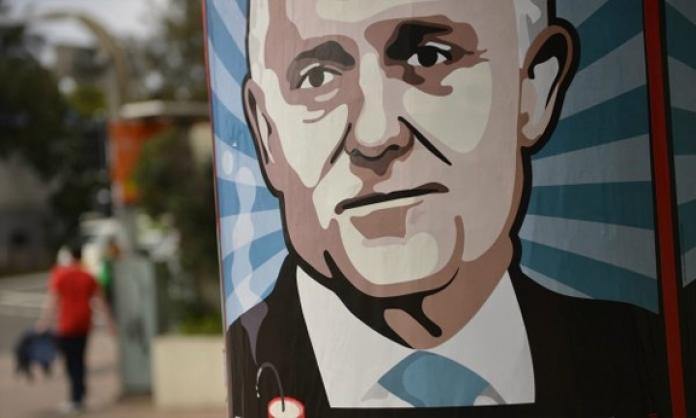The Liberals have just managed to scrape over the line. However, Malcolm Turnbull’s claim that he has a “solid” majority and a clear mandate is sheer fantasy.
The Liberals and the Nationals combined received only 42 percent of the vote in the House of Representatives, less than the combined Labor and Greens vote of 45 percent. In the Senate, the Coalition vote was less than 36 percent, compared to 38.5 percent for Labor and the Greens and 25.8 percent for the crossbenchers.
This is not a mandate for tax cuts for big business, the running down of the health system, cuts to spending on education and social welfare or tougher anti-union laws. But that is precisely the program that the big end of town is urging the government to adopt.
Business leaders are clearly worried that, because Turnbull has only a wafer-thin majority, he will back way from corporate tax cuts and increased austerity to “balance the budget”.
Financial services firm KPMG led the charge with a call for major cuts to government spending on health, education and welfare, while backing the tax cuts for big business. It was backed up by the three credit ratings agencies, Moodys, Standard and Poor’s and Fitch Ratings, with demands for “fiscal consolidation” – code for screwing the rest of us.
Business Council of Australia chief Jennifer Westacott slammed the supposed “anti-business rhetoric” of Labor’s election campaign and rejected the “false choice” between corporate tax cuts and education spending. James Pearson, chief executive of the Australian Chamber of Commerce and Industry, told ABC Radio that the corporate tax cuts remained justified. “We still support that. It makes just as much sense today as it did before the election.”
Simon Bennison, chief executive of the Association of Mining and Exploration Companies, echoed the call for tax “reform” to be at the top of the government’s agenda. Graham Bradley, chairman of Stockland and HSBC Bank Australia, said that he expected minor parties in the Senate, such as the Nick Xenophon Team and One Nation, to be more supportive of a “pro-business agenda” than in the previous parliament.
“My assessment would be that it will be easier for the Coalition to negotiate its way through the reform program in the new Senate.”
The new head of the AMA, Michael Gannon, added another element to the reactionary austerity agenda with a call to resuscitate the idea of a Medicare co-payment on visits to the doctor – something which would only undermine bulk billing.
The other aspect of this right wing chorus is the call by business leaders and the mainstream media for “stability” and for all the parties to work together for the supposed “good of the nation”. Jennifer Westacott declared:
“While counting of votes is likely to continue for several days, Australians and Australian business can ill afford gridlock, recriminations or in-fighting. We need all parties who are likely to be represented in parliament to focus on the importance of improving Australians’ standard of living through a strong and growing economy.”
She was backed by James Pearson, who argued that, despite Turnbull’s narrow win, the new parliament was an opportunity to build new stability. “There’s no doubt that the Senate which has been elected, will be a much more diverse body than it was before.
“The degree of difficulty may well have gone up, but business is ready to build a constructive relationship with the new crossbenchers and the old, and we’ll do so with genuine good will. The responsibility is on all politicians, be they government, opposition or on the crossbenches. We cannot afford another three years of policy gridlock.”
This plea to work to together to provide “stability” for the supposed good of the country was echoed by independents Andrew Wilkie and Cathy McGowan, who rushed to offer their support to prop up a Turnbull government, and Greens leader Richard Di Natale, who offered Turnbull help to provide a “stable, effective and progressive government”.
But there is nothing in the least progressive about government “stability”. All “stability” means is the unchallenged continuation of the same neoliberal agenda that has dominated politics for the last 30 years under both Liberal and Labor governments, has led to a massive redistribution of wealth away from workers to the super-rich and a rundown of the basic services that most of us depend on.
The rich, the big corporations and their media demand stability so that they can go on maximising profits at our expense. They denounce as “populism” anything that might even slightly benefit the rest of us – an end to privatisation, more money for health care, increased job security, better pensions, more rights for workers and wealth redistribution.
Unfortunately, but typically, opposition Leader Bill Shorten reiterated that Labor would work with the government on budget repair. “Our AAA credit rating is under threat; we’ve got to get the budget back, the debt under control.”
No wonder that Labor failed to inspire widespread enthusiasm among workers and young people; its vote languished at just below 35 percent, well down on the 43.38 percent it achieved in 2007.
Ironically, at the moment the people who seem least inclined to promote stability are the ultraconservatives of the Liberal Party and their media backers such as NewsCorp columnist Andrew Bolt. They are campaigning for a reversal of the government’s policy on superannuation, to protect the immense wealth of the top 4 percent of the population, a return of Tony Abbott to cabinet and a delay of any moves to legalise same sex marriage.
Staunch conservative and former minister Kevin Andrews spearheaded the call for appointing Abbott to the front bench. Arch reactionary Cory Bernardi denounced Turnbull for supposedly showing “arrogant contempt for the Liberal Party” and called for a “conservative revolution” in the party.
Right wing Tasmanian Liberal powerbroker senator Eric Abetz, who was dismissed to the backbench by Turnbull, called the election result the “barest of victories … if we can call it a victory.
“When you have had such a big kick up the pants, as we have had as the Coalition, and especially the Liberal Party element of the Coalition, then I think it is worthwhile to ask the question; ‘Why did we haemorrhage so many seats? Why did we haemorrhage so many votes?’”
Rather than craving “stability”, our side needs to be taking advantage of Turnbull’s much reduced authority and these sharp divisions in the Liberals’ ranks to push back hard with our own anti-austerity agenda.
Labor’s attacks on the Liberals’ plans to undermine Medicare clearly had a popular resonance in the last few weeks of the election campaign. This indicates that there is no shortage of people who reject the neoliberal agenda of the big end of town. The left and unions need to be mobilising them to make Turnbull’s life hell.









